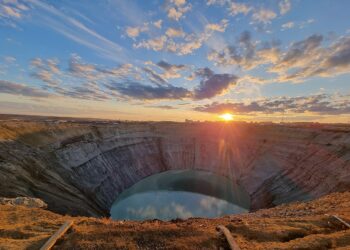
The Pavlof volcano lies in the long chain of the Aleutian Islands off the west coast of Alaska, and is one of the most active volcanoes in the United States. It’s about seven kilometers (4 miles) across and 2500 meters (1.5 miles) high; after being quiet since 2007, it started erupting again in May 2013.
The ash cloud went as high as 320 km into the atmosphere, which gave the guys on the International Space Station to take some stunning orbital pictures of the eruption.
Even though the eruption itself wasn’t that dangerous, the volcanic ash can be a hazard; it’s not made from smooth, rounded particles, but rather have extremely sharp edges which can easily choke airplane engine and damage windshields.
‘It’s dangerous for the people downwind of it, because you don’t really want to breathe in that fine ash that long,’ Wessels said of the eruption taking place on the Alaska Peninsula, 590 miles (950km) southwest of Anchorage.
The thing is, images of volcanoes taken from outer space, as awesome as it sounds, are not that cool. However, astronauts from the ISS have much more flexibility than your average satellite, and they can capture such an event from multiple angles.
These pictures for example, were taken with a Nikon D3S digital camera equipped with an 800, 400, and 50 millimeter lens, respectively.






